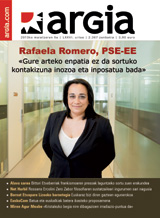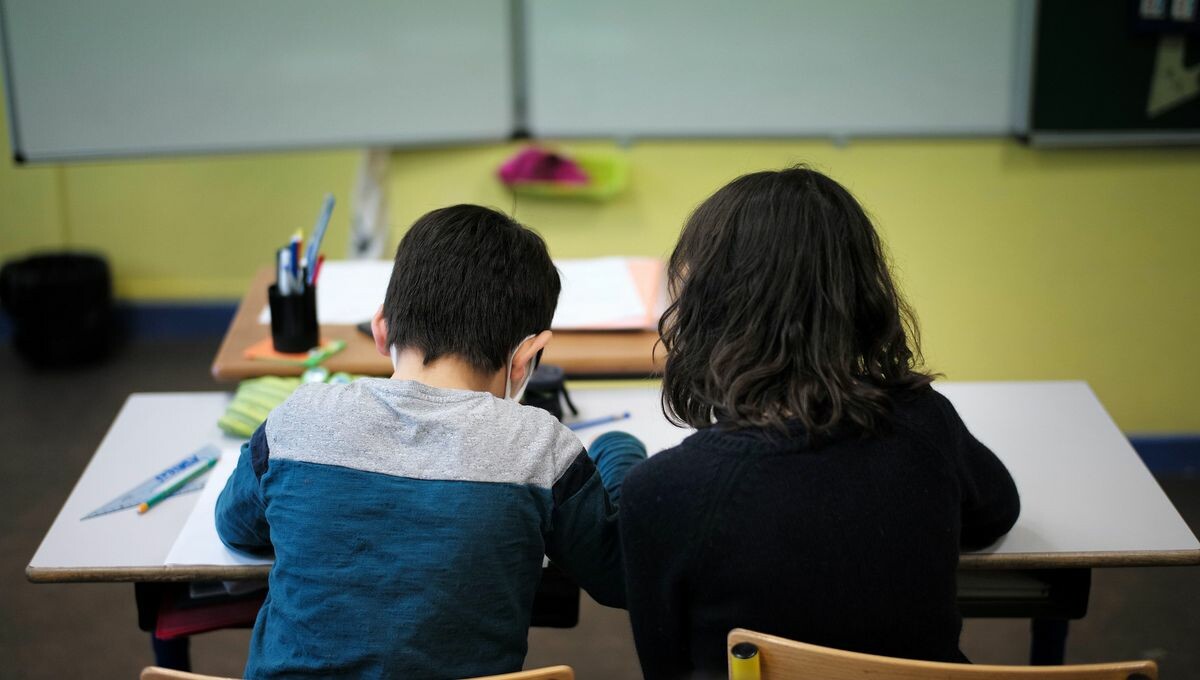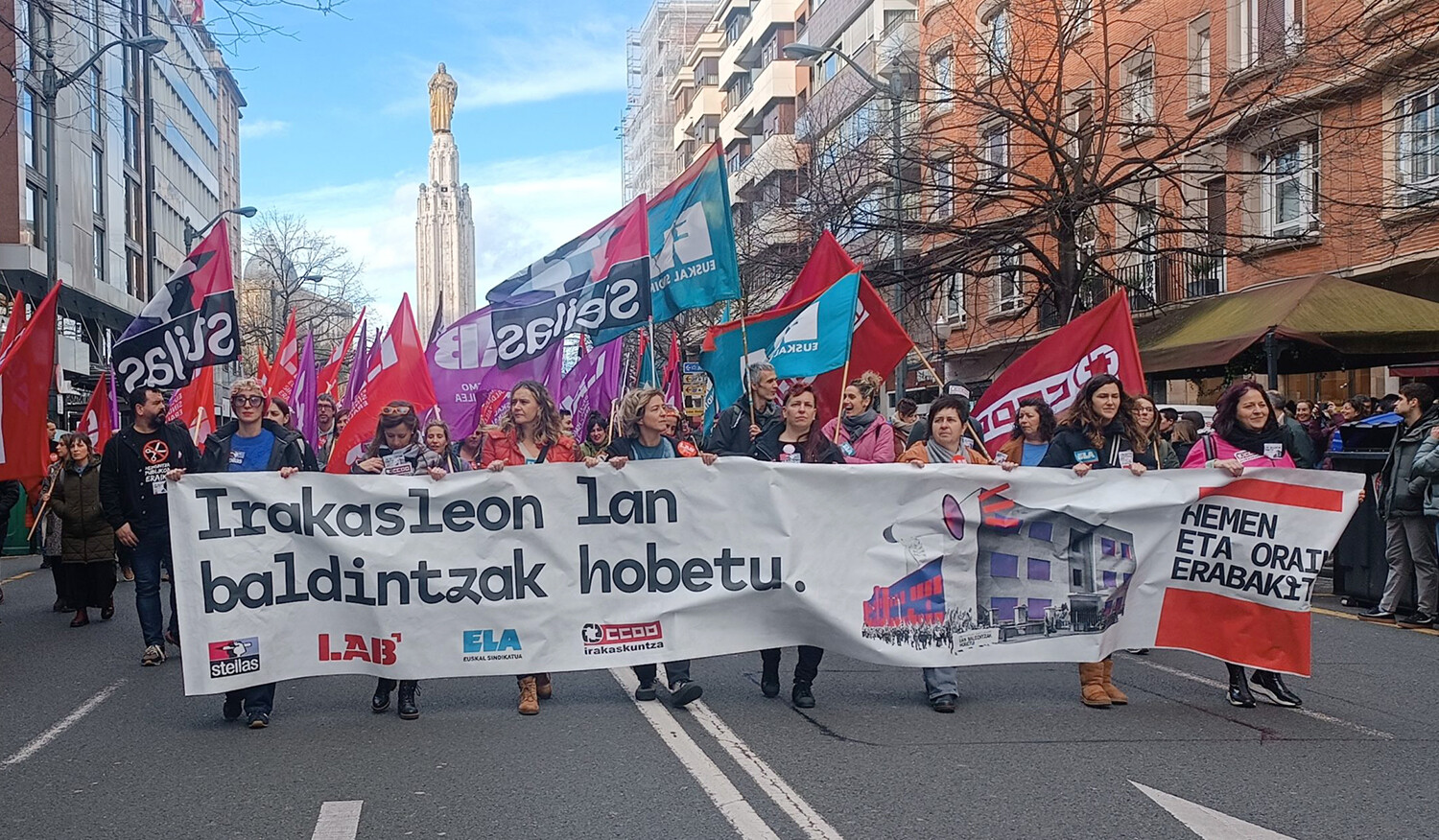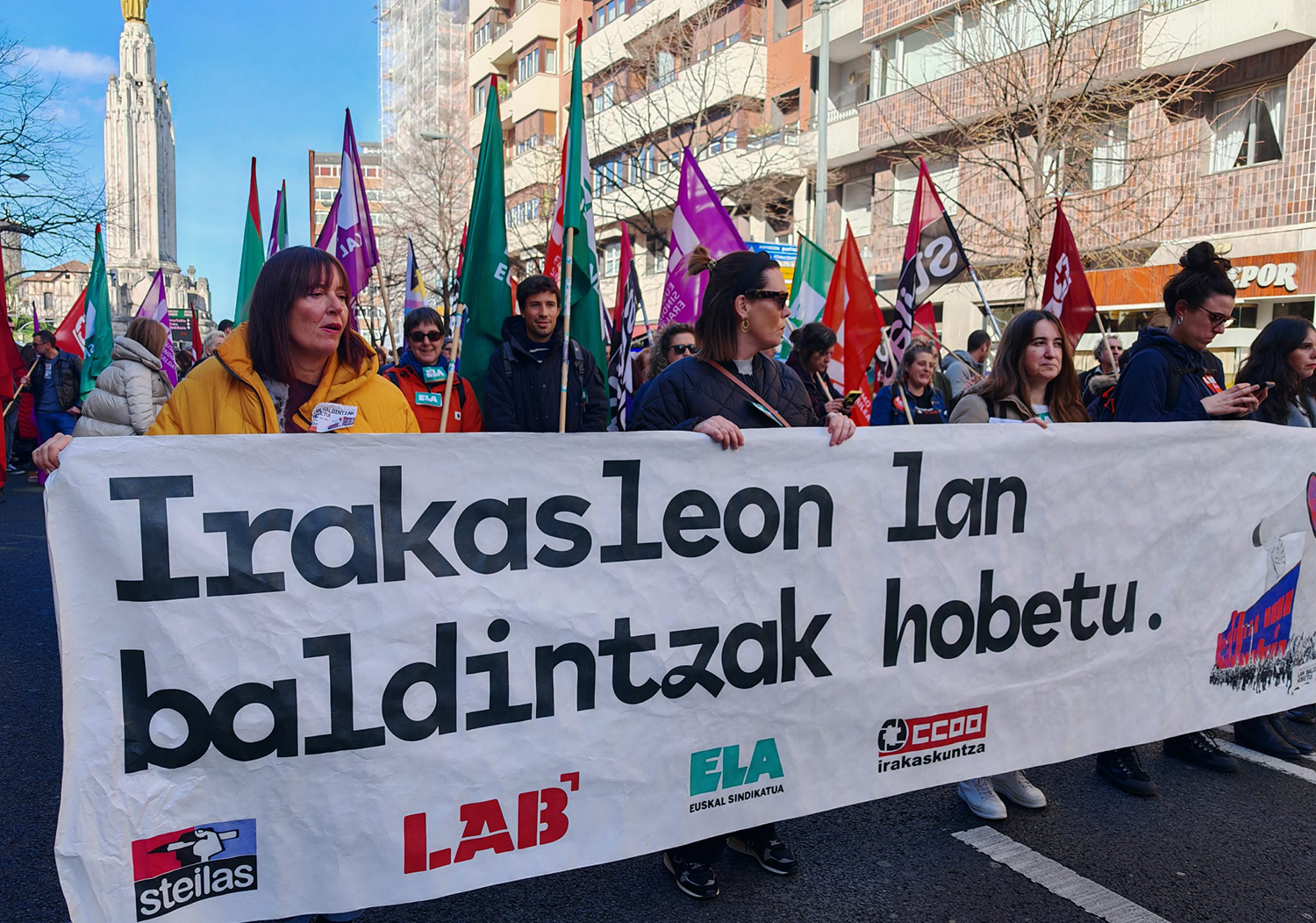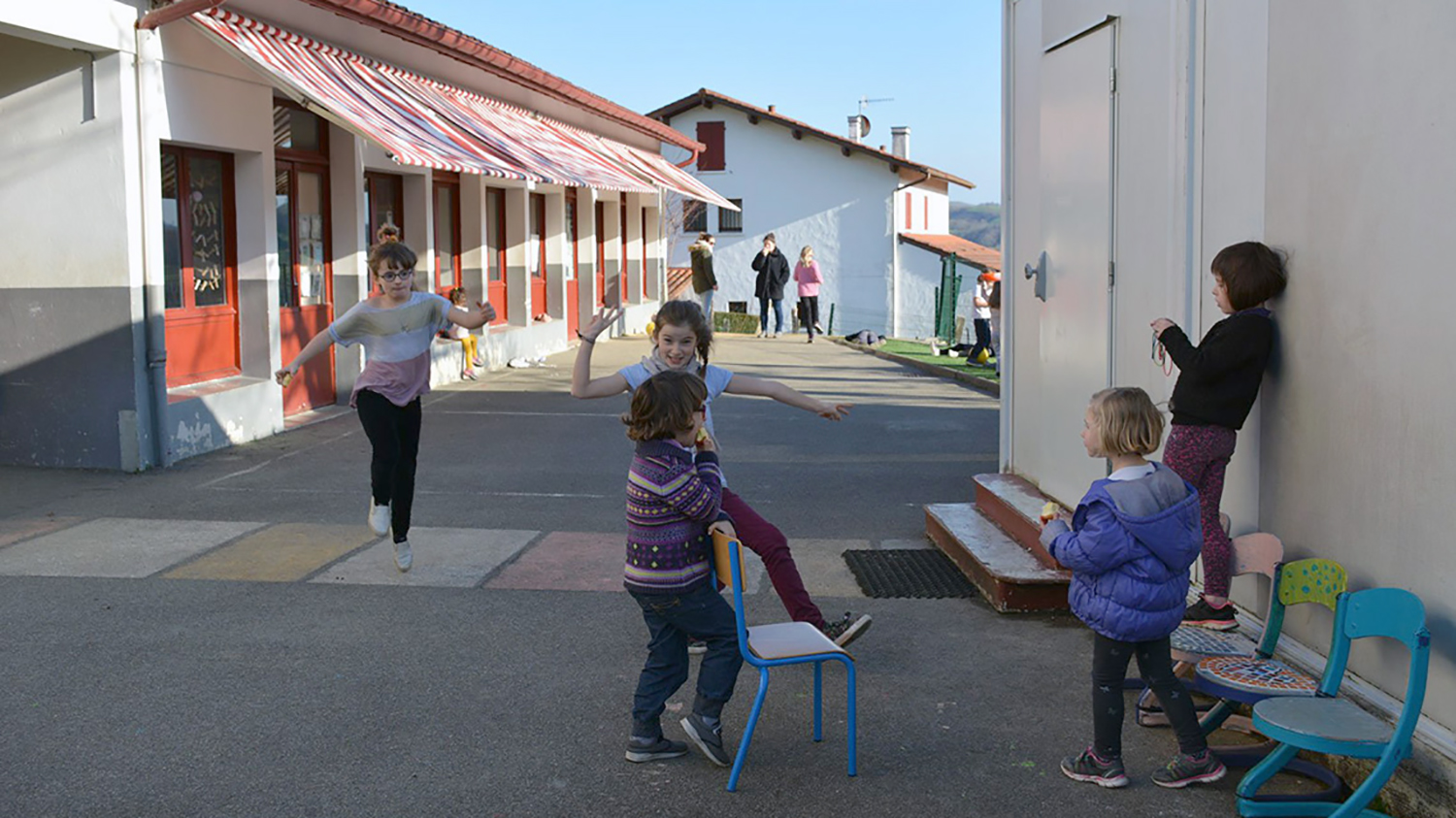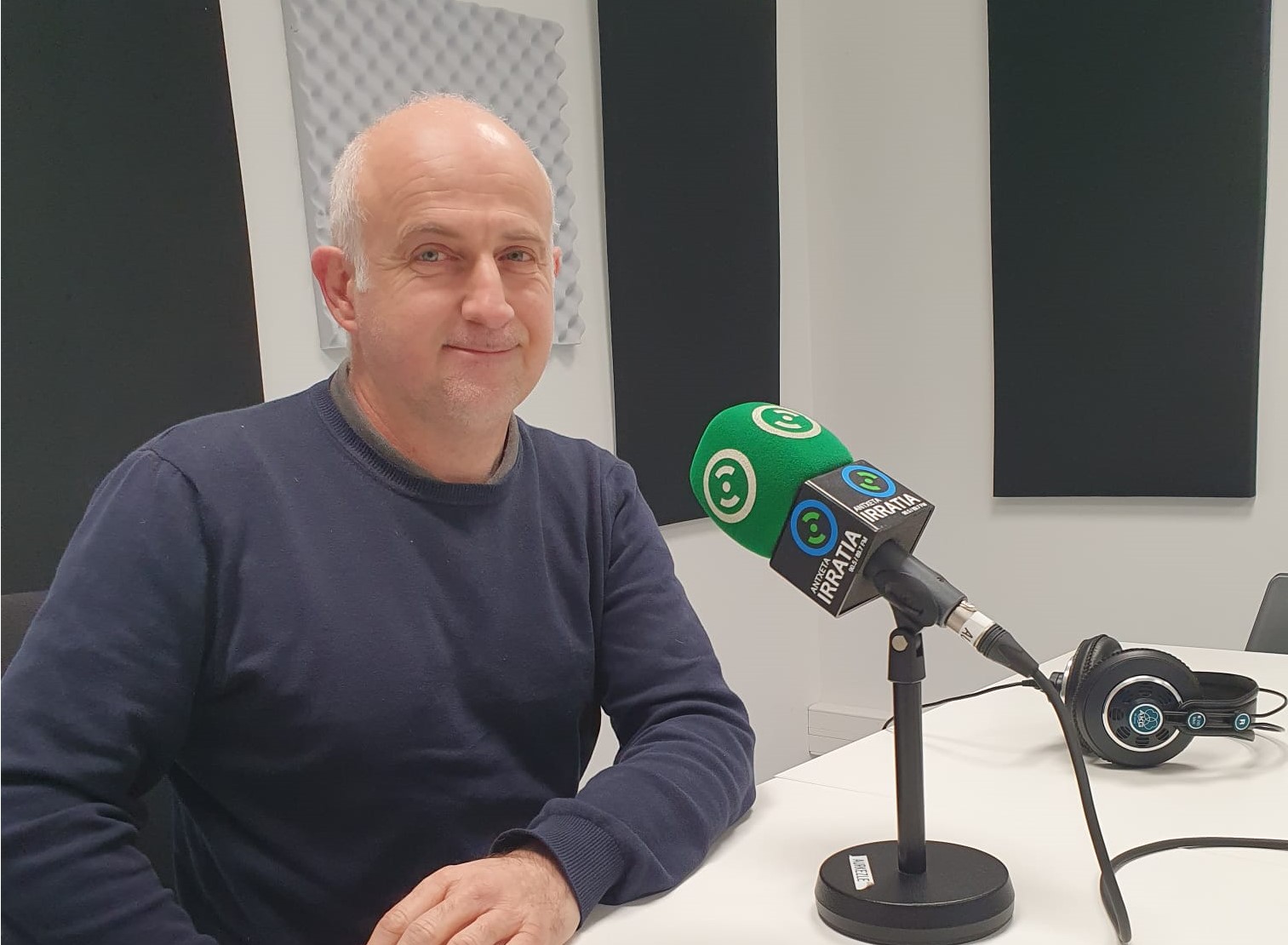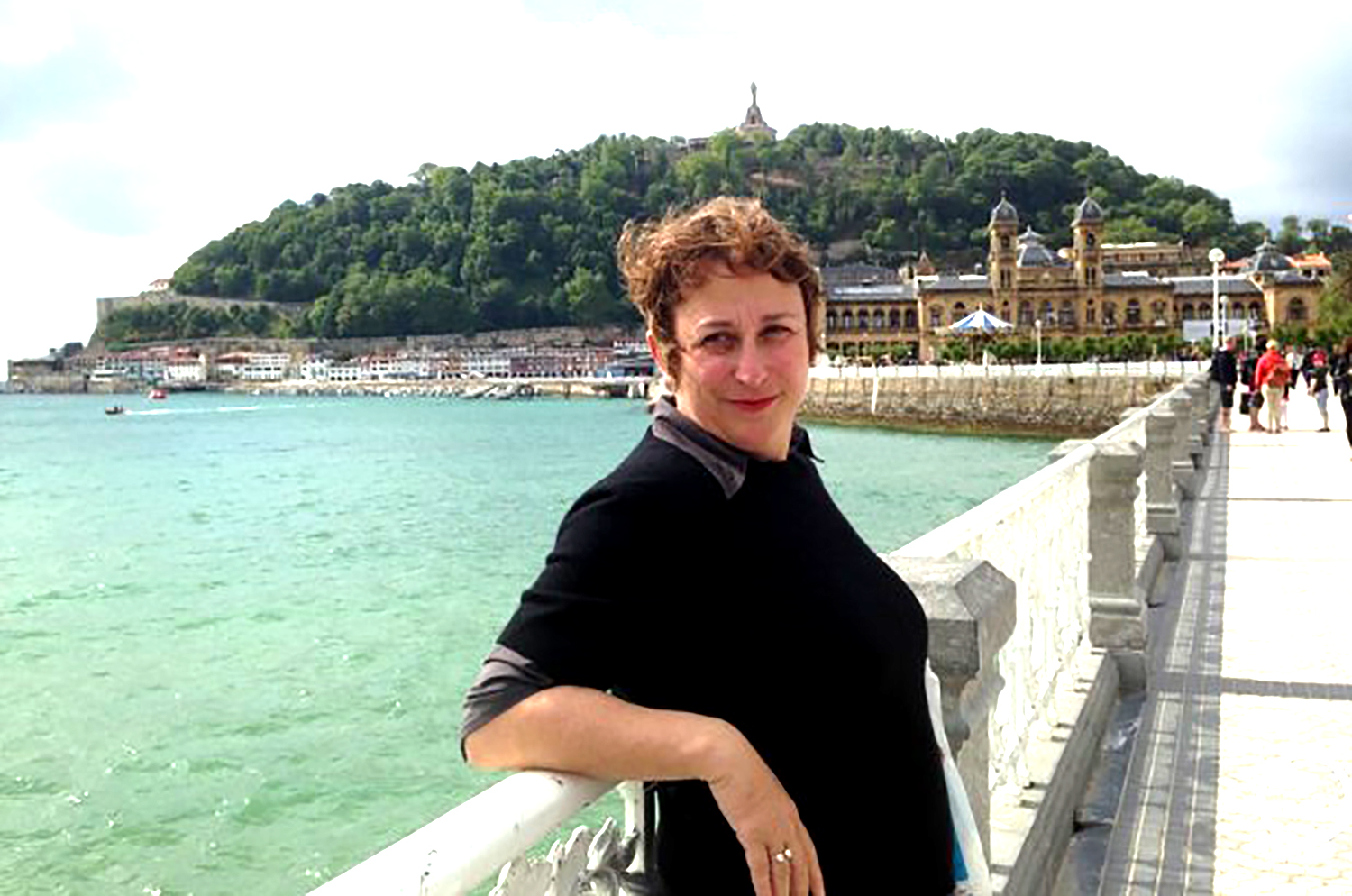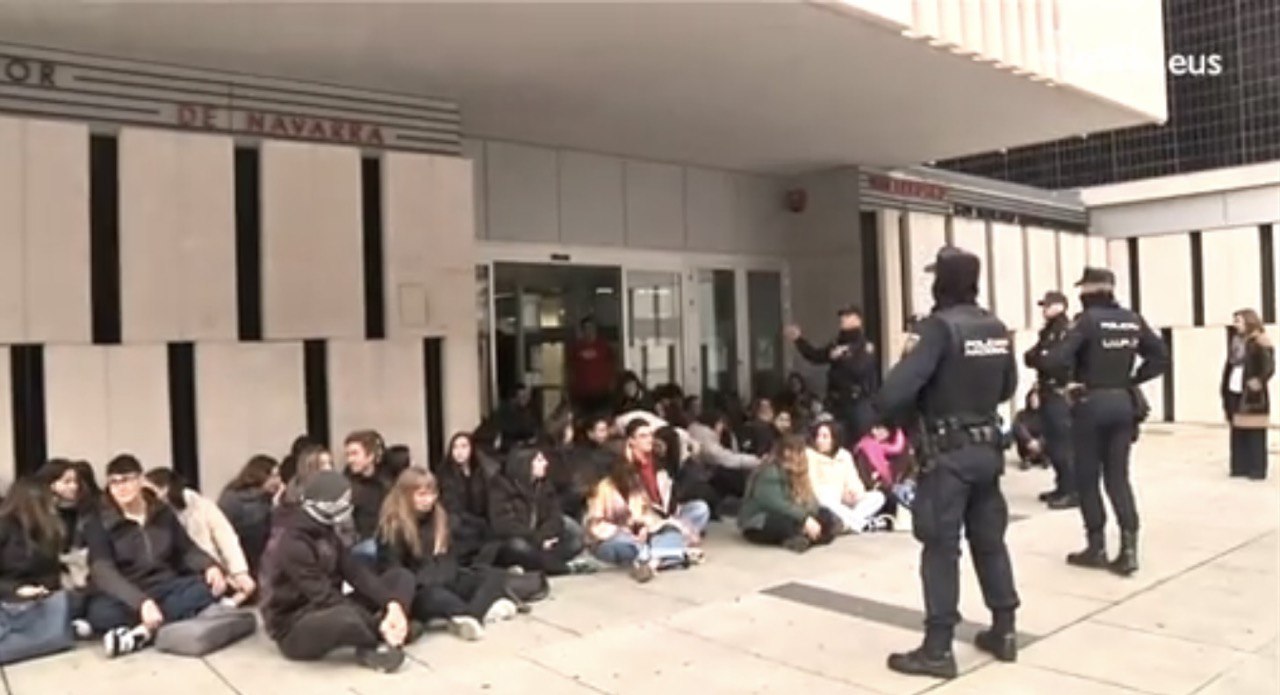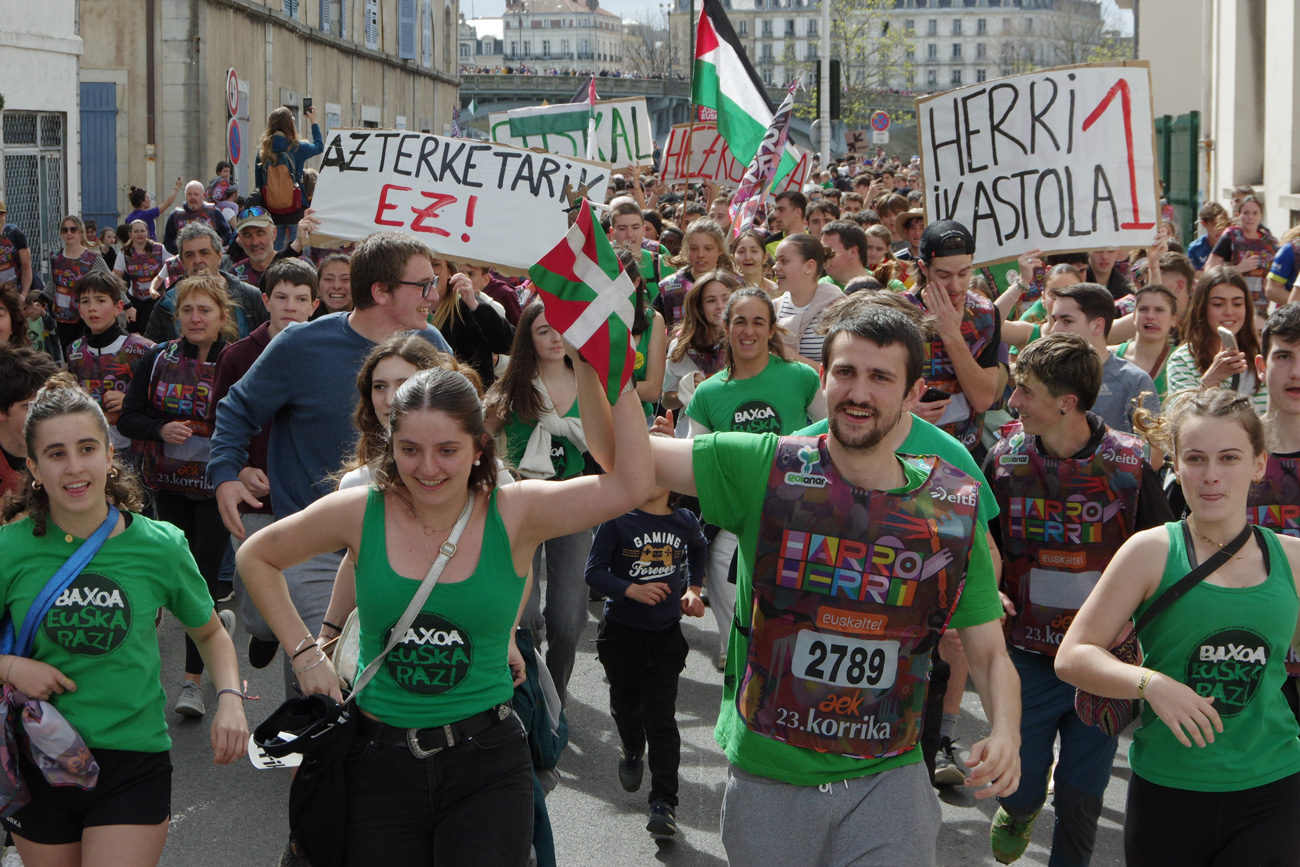Residence of people interested in learning Basque
- As every year, SEASKA has organised a Herri Urrats for day 12, in which it will participate in the initiative. Among the achievements of SEASKA is the Bernat Etxepare College of Baiona, the only liceo in Basque that teaches in Iparralde. Thinking of the students who live far away, it was decided to create a boarding school near the Liceo, where from Monday to Friday many young people coexist under the responsibility of the educators. We have approached the barnetegi to get to know their day to day.
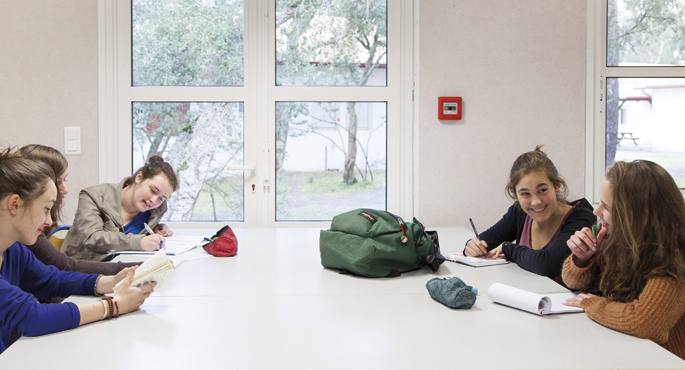
The sun has smiled at us today. Privilege, taking into account the time of the last days. We aimed to Nos, about 6 kilometers from Baiona, to get to know the barnetegi of Bernat Etxepare Lizeoa for students between 15 and 17 years of age. Reflection of the typical landscape of the campas, we enter an enclosure with sandy soil, with several one-story buildings, with trees and recreation areas (football field, pediment, barbecue, basketball court, tennis court and pool). We receive the poster of the Centre de vacances.
The Etxepare Lyceum Barnetegi was created 15 years ago. Some fathers and mothers of Zuberoa and Baja Navarra took the decision to see that the daily transfer of their children to the institute required them a lot of time. At first, the students lived in Kanbo School, but as the school became small, they created their own boarding school in another building. Since then, the number of students has increased, which has led them from one building to another.
Internship is not a residence for students' sleep. It is also a place where the continuity of care and education of students is guaranteed from the moment they leave the Liceo until their attendance to class the next morning. Three educators are in charge of this and we have been with two of them, Imanol Larrañaga and Peio Mint. Peppermint, a neighbor of Baiona who has been working since the establishment of the boarding school, tells us about the duties of educators: “We take the group to the Liceo in the morning in the bus of the town and in the afternoon one of us takes to take him back to the boarding school. Once here, we stay with them until the next day. Care, safety, studies, sleep, worries… We do everything with them, we are not just observers”.
“With every level in the Liceo (second, first and terminal, in that order) we do a different job,” says Larrañaga, Bera’s educator. “With those who have the first year, as is the first time they live outside the home, we take care that they feel safe here. We also keep track of the studies, with which we do a one-hour class each afternoon. The former are freer, but we try to help them when they need to. We let the people of the terminal do their work and their lives more autonomously.” The differentiated treatment given to students of each level is also evident in the authorized exits. Second- and first-class students are only allowed to stay out of boarding school on Wednesday until dinner time. Terminals are allowed to leave every day if the parents so authorize. For the students to collaborate in the care of the hospitalized, they separate them into several groups, confusing those of different levels to relate with each other. A calendar is defined and each group is assigned from time to time one thing: doing the dishes after dinner, washing the dining room or the buildings inside…
This year there are 43 students in the barnetegi, a little less than last year. “Last year there were 25 terminals and this year there were fifteen. We normally keep them between 45 and 50, at some point we have reached 60,” explains Peppermint. “This year we don’t have Hegoalde, but there have been some in the past year,” added Larrañaga. Most are from Zuberoa and Baja Navarra, and a few are from Hendaia.
Asked about the use of Euskera by the students, they have shown their concern. “I hear more French than I would like when they talk to each other, they’re used to it. I think that four or five years ago more Euskera was heard – says Mint – but as they get older they are becoming more and more aware that Euskera is a language to be cared for.” However, they say that a kind of community has been created around the Basque country: “We don’t know what language each student speaks in his or her village, but what we are clear about is that at least with us they do everything in Basque. At least that is something.”
Journal in the barnetegi
Maiana Etxegoinberri and Maider Okhi Bernat Etxepare are two students from Zuberoa, the first from Urdiñarbe and the second from Zalgizko. They are of the first level, they are in the social and economic line and in the sciences, and they live in the boarding school during the week. They have rooms of three in the boarding school and sleep together. Every day they get up at 6:30 in the morning and, even without waking up, they catch the bus from the town at 7:20 in the morning to travel 6 kilometers to the Liceo. They enter class at 8:15, ready to face a new day. They eat there, and after afternoon classes they go out at 16:30.
One of the three educators awaits them at the door of the Liceo, and together with the students take the bus from the village and return to the boarding school. They snack, and then they have free afternoon to work and be with their friends. “Normally we tend to be in the cameras chatting or doing work with friends, we like more than the living room,” says Maiana. “In the living room we have television, but only to watch DVDs; we also have a computer. When it does right, there are a lot of people who are engaged in ball, basketball, football...” They usually have the help of educators to perform the tasks. “Most are very responsible students,” explains Bera’s educator.
Dinner is at 19:30 and all students meet in the dining room building. They can shower before 10 p.m. and at 22:30 the lights of the boarding school are shut down. “We fell asleep right away… Ajajajajajajajajajajajajajajajajajajajajajajajajajajajajajajajajajajajajajajajajajajajajajajajajajajajajajajajajajajajajajajajajajajajajajajajajajajajajajajajajajajajajajajajajajajajajajajajajajajajajajajajajajajajajajajajajajajajajajajajajajajajajajajajajajajajajajajajajajajajajajajajajajajajajajajajajajajajajajajajajajajajajajajajajajajajajajajajajajajajajajajajajajajajajajajajajajajajajajajajajajajajajajajajajajajajajajajajajajajajajajajajajajajajajajajajajajajajajajajajajajajajajajajajajajajajajajajajajajajajajajajajajajajajajajajajajajajajajajajajajajajajajajajajajajajaj Occasionally, especially when it is a good time, they make afternoon trips with the educators. “Last year we went to Itsasu afternoon. We've also done rafting and we've gone to play bowling games," says Maider.
We have been told about the Basque community that meets in the barnetegi and the liceo. Beyond that, “with most people outside the Liceo we do it in French, because many do not know Basque well,” explains Maiana. In the case of others, although at home they speak in Basque, their parents take them to the French lyceums”. However, the two speak almost everything in Basque in their villages, especially with their families. Barnetegi also produces an enriching exchange of dialects. “We talk almost always about Sulatins with friends and educators in the area, and so do the Bajonavarras; each one speaks in his dialect,” says Maider. In the Liceo, on the other hand, they try to work together.
Living outside the house throughout the week, more than worries, has aroused desires from the beginning. “We are very comfortable here,” says Maiana. In addition, many of us have come from the same school and we already knew each other.” “The educators are also very majos,” adds Maider.
They have explained their concerns about the Low test they will be doing next year. “The platform created in the Liceo has already achieved some things: We can do the math, history and geography tests in Basque,” says Maiana. I hope that greater achievements will be achieved, but I do not believe that anything else will be achieved for what we have to do the test.”
They do not yet have a concrete plan for the future. Maiana says she wants to be a teacher; Maider still doesn't know what she wants. It also deals with the difficulties to study in Basque in Iparralde. They could travel to the South, but to do so, once the terminal is done, they would have to do the Selectivity instead of the Bass. “When we are clear about what we want to learn, the first thing we will do is see if the center that offers these studies is good or not, and not so much whether it is in Basque or in French.”
As nomads
Due to the cessation of Kanbo’s barnetegi, the students moved to another building. Since then, it has become a nomadic boarding school. “This year is not a fixed place either,” Peio Mint and Imanol Larrañaga say, “although they feel in it as in a small paradise.
The future project of the Liceo consists of the construction of a school centre in Biarritz and a boarding school with 120 places, next to the Liceo. “So students won’t have to go back and forth every day,” says Mint. “Although we do not have concrete forecasts, we believe it will be built by the beginning of 2015, if everything goes well,” explains Larrañaga. However, they do not know where the near future will lead them. “We don’t have room for next year yet,” says Mint. Quick solutions are sought each year to find adequate and affordable solutions at a price like this year’s. They jump from one side to the other, but it seems that the time to get a fixed and stable site is getting closer.
Seaska Sarean inklusio egoeran dauden 165 ikasleei laguntza bermatzeko hasi dute kanpaina, antolaketa propioa eratuta. Frantziako Hezkuntza Ministerioaren jarrera salatu dute kanpaina aurkezteko prentsaurrekoan, behar bereziak dituzten haurren inklusiorako baliabide... [+]
Aiaraldeko hainbat irakaslek mezua igorri diete ikasleen guraso eta familiei, dagoen informazio zurrunbiloan, grebarako arrazoiak modu pertsonalean azaltzeak euren borroka eta lanuztea hobeto ulertzeko balioko dielakoan.
Grebaren bezperan Hezkuntza Sailak “edukirik gabeko” mahaia deitu zuela eta sindikatu deitzaileak “errespetatu gabe” akordioa “antzezteko” gutxiengoa duten sindikatuak “erabili” nahi izan zituela salatu ostean, beste bi greba... [+]
Eric Etxartek Seaskako lehendakarikide ardura hartu berri du urte hatsarrean, Antton Etxeberri eta Sophie Layusekin batera. Peio Jorajuriaren lekukoa hartu dute hirurek, eta Lehendakarikidetza taldea osatu dute.
The SEASKA federation has been able to enter the programme with a hundred more students than last year. With two-year-olds joining in the coming months, the limit of 4,300 pupils will be exceeded. In the first year, the increase is 33 students, but the most outstanding is the... [+]









